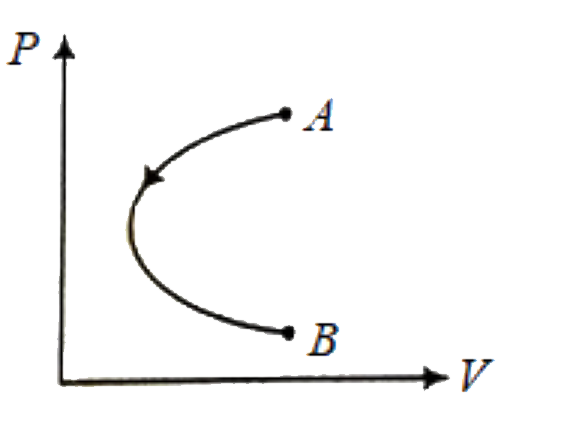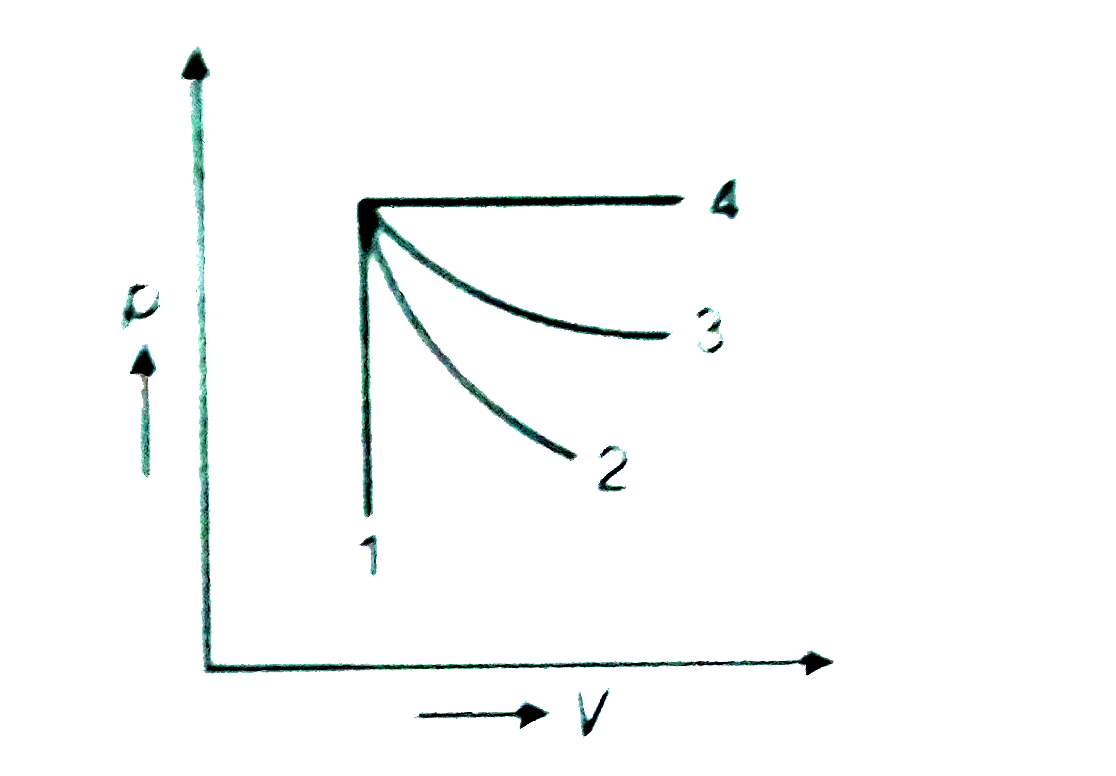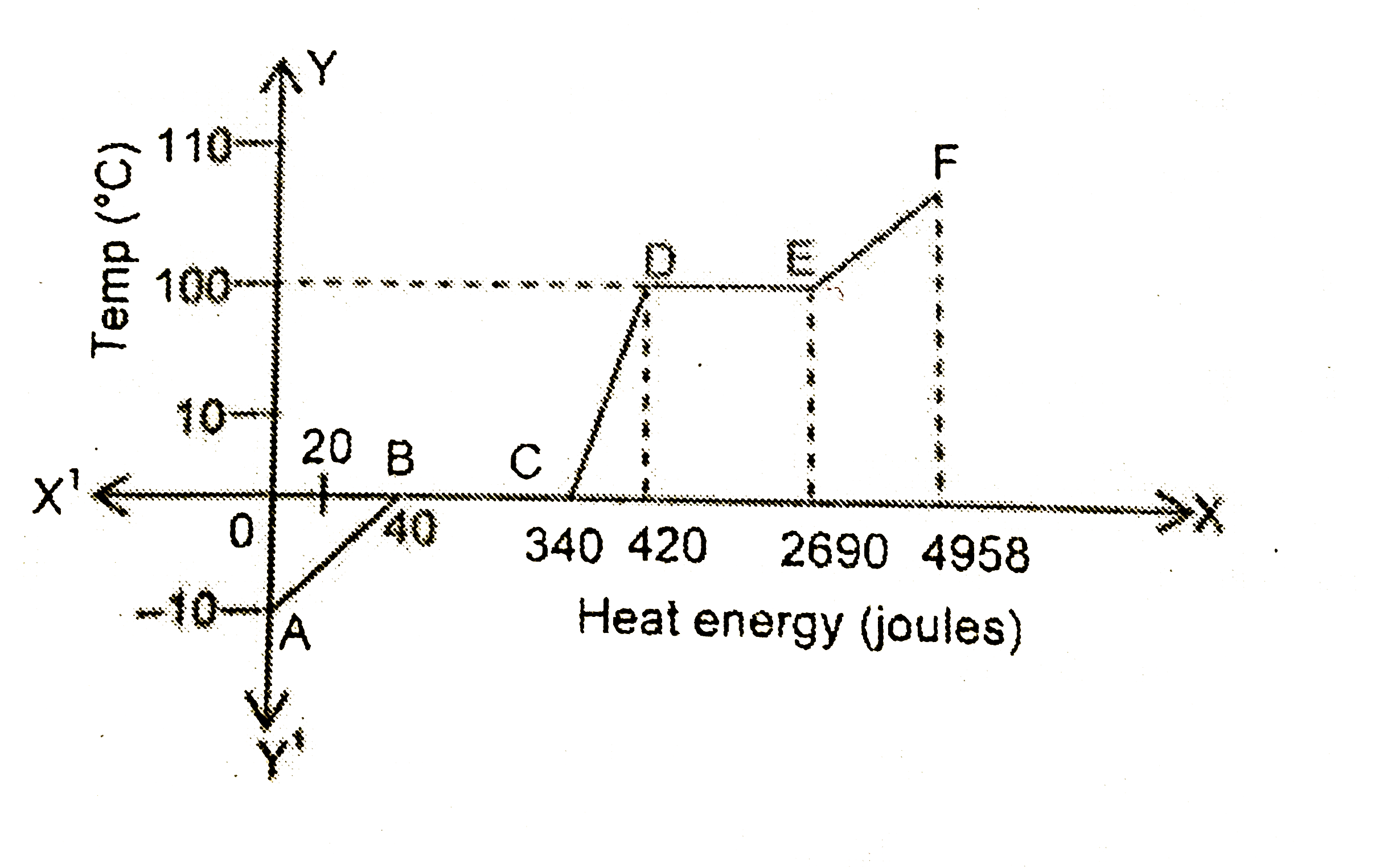An idel gas undrgoes isothermal process from some initial state to final state . Choose the correct alternatives.
The correct Answer is:A, D
For an isothermal process change in temperature of the system constant.
We know that for an ideal gas = change in internal energy
[where, n is number of moles and is specific heat capacity at constant volume ]
From first law of thermodynamics,
Topper's Solved these Questions
- THERMODYNAMICS BOOK - NCERT EXEMPLARCHAPTER - THERMODYNAMICS EXERCISE - VERY SHORT ANSWER TYPE QUESTIONS
5 Videos
- THERMODYNAMICS BOOK - NCERT EXEMPLARCHAPTER - THERMODYNAMICS EXERCISE - SHORT ANSWER TYPE QUESTIONS
6 Videos
- THERMODYNAMICS BOOK - NCERT EXEMPLARCHAPTER - THERMODYNAMICS EXERCISE - LONG ANSWER TYPE QUESTIONS
5 Videos
- THERMAL PROPERTIES OF MATTERBOOK - NCERT EXEMPLARCHAPTER - THERMAL PROPERTIES OF MATTEREXERCISE - Very short Answer type Questions
15 Videos
- UNITS AND MEASUREMENTS BOOK - NCERT EXEMPLARCHAPTER - UNITS AND MEASUREMENTS EXERCISE - Long Answer Type Questions
9 Videos
Similar Questions
One mole of a monatomic gas and one mole of a diatomic gas are initially in the same state. Both gases are expanded isothermally and then adiabatically such that they acquire the same final state. Choose the correct statement.
View SolutionP - V diagram of an ideal gas is shown. The gas undergoes from initial state A to final state B such that initial and final volumes are same. Select the correct alternative for given process AB.

View Solution
Knowledge Check
An ideal gas undergoes isothermal process from some initial state i to final state f. Choose the correct alternatives.
AdU=0Bdθ=0Cdθ=dUDdw=dwAn ideal gas undergoes isothermal process from some initial state i to final state f. Choose the correct alternatives.
AdU=0BdQ=0CdQ−dUDdQ=dWAn ideal gas undergoes change in its state from the initial state I to the final state F via two possible paths as shown. Then
 Athere is no change in internal energy along path 1Bheat is not absorbed by the gas in both pathsCthe temperature of the gas first increases and then decreases for path 2Dwork done by the gas is larger in path 1.
Athere is no change in internal energy along path 1Bheat is not absorbed by the gas in both pathsCthe temperature of the gas first increases and then decreases for path 2Dwork done by the gas is larger in path 1.
A gas is taken isochorically from state A to state C as shown in the graph. Choose the correct statement:

View SolutionAn ideal gas undergoes for different processes from the same initial state (figure). Four processes are adiabatic, isothermal, isobaric and isochoric. Out of 1, 2, 3 and 4 which one is adiabatic ?

View SolutionThe heating curve of a particular substance in solid state is as shows in the figure.Choose the correct alternative

The change of state in the graph is represented by ________part.
View SolutionThe heating curve of a particular substance in solid state is as shows in the figure.Choose the correct alternative

The change of state in the graph is represented by ________part.
View SolutionThe change in the entropy of a 1 mole of an ideal gas which went through an isothermal process form an initial state (P1,V1,T) to the final state (P2,V2<T) is equal to
View Solution
